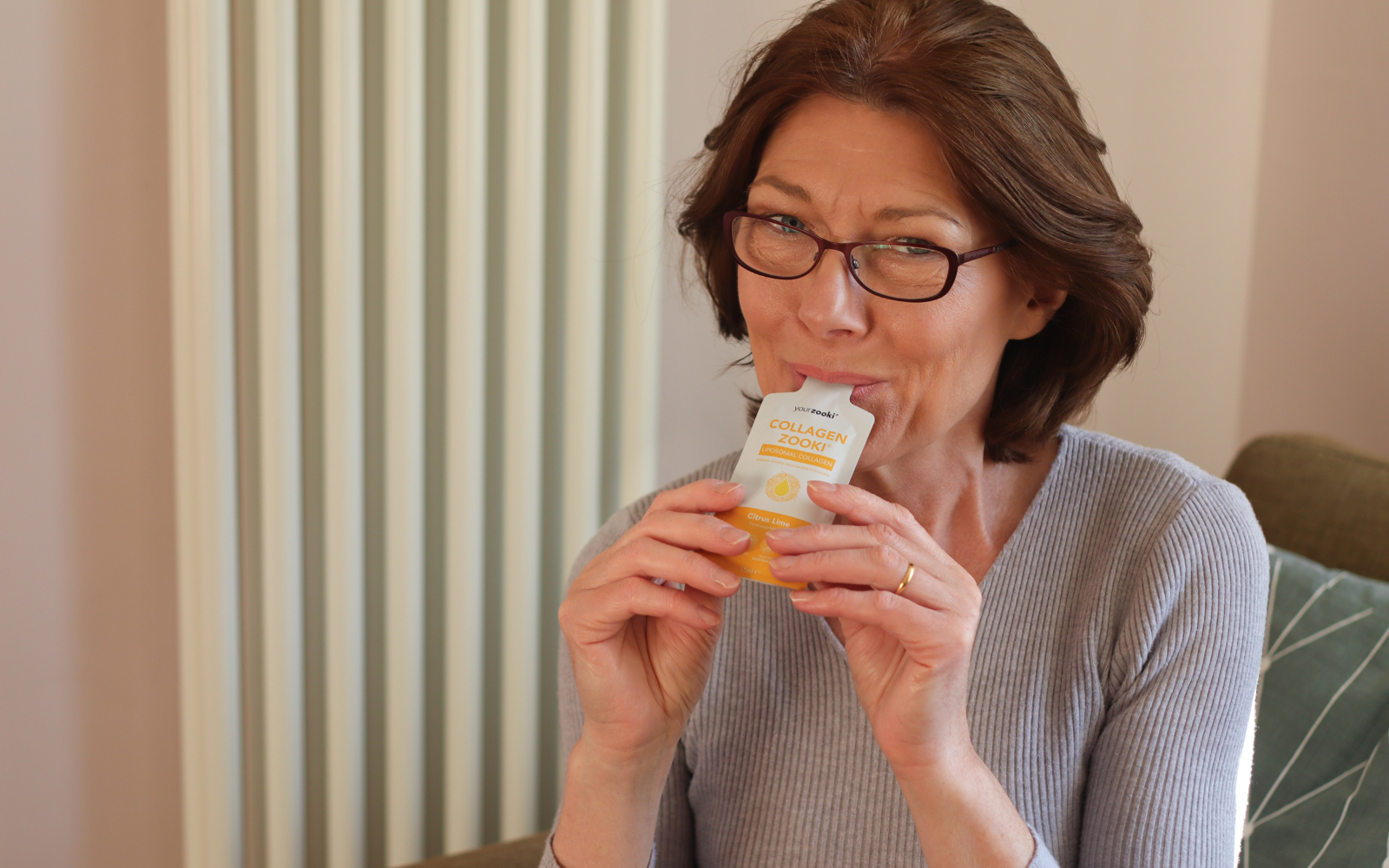Collagen is the most abundant protein in the human body, and although it is perhaps best known for its role in supporting the skin, hair and nails, it has many other benefits too.
Due to the important role Collagen plays, it’s essential to make sure we’re getting enough. Although our bodies do produce collagen, the rate at which this happens slows down over time (by 1% each year after the age of 25), so it’s vital to be able to recognise the symptoms of Collagen deficiency & depletion and to understand how we can prevent it.
Collagen deficiency & depletion
There are many factors that can deplete collagen in your body and slow down collagen production. These include:
-
Diet: Your body naturally makes its own collagen by breaking down dietary protein into individual amino acids and restructuring them into collagen molecules, namely glycine, proline, and hydroxyproline. This process requires enzymes and essential nutrients such as Vitamin C, iron and oxygen, so a diet deficient in these nutrients and amino acids can lead to the inability to produce collagen. High sugar consumption can also negatively affect collagen formation.
-
Ageing: As you age, your ability to produce collagen declines over time due to a reduction of an enzyme that is needed for production.
-
Sunlight: Ultraviolet rays from sunlight can cause collagen to rapidly break down, damaging collagen fibres and causing abnormal elastin to build up. The UV rays also damage collagen in your skin which can lead to wrinkles and fine lines.
-
Environmental toxins and pollutants: Many pollutants, such as cigarette smoke, alcohol, air pollution and radiation, damage collagen and elastin in the skin.
-
Genetics: Genetic changes can affect the extracellular matrix, preventing your body from producing as much collagen, or meaning the collagen that is produced may be dysfunctional and mutated, often leading to symptoms of collagen depletion.
Symptoms of collagen deficiency & depletion
Signs and symptoms of collagen deficiency & depletion can present as:
-
Dull, lacklustre skin
-
Muscle aches
-
Loss of mobility
-
Problems with blood flow
Collagen sources
As well as eating food rich in collagen in order to prevent symptoms of collagen deficiency you can also eat foods that provide the building blocks needed for collagen production.
Foods containing collagen
Collagen is found in a variety of meat and fish-based foods. These include:
-
Bone broth
-
Chicken and chicken skin, pork skin, beef
-
Fish and shellfish with skin and bones included
-
Proline (one of the molecules in collagen): Egg whites, meat, cheese, soy and cabbage
Although these foods contain collagen, it's not known whether the collagen in food provides the same benefits as collagen supplements as supplements typically contain a higher amount.
Foods that boost collagen production
The body makes collagen by breaking protein down into amino acids and restructuring them into collagen molecules, namely glycine, proline, and hydroxyproline. This process requires enzymes and nutrients such as vitamins C and A, copper, anthocyanins, iron and oxygen, so a diet deficient in these can stall collagen production. Vitamin C also protects your body from oxidative stress, which is known to break down collagen.
-
Vitamin C: Oranges, strawberries, peppers and broccoli
-
Vitamin A: Fish oil, eggs, orange and yellow vegetables and fruits, broccoli, spinach, and most dark green, leafy vegetables
-
Anthocyanins: Berries like blueberries, blackberries, cherries and raspberries
-
Copper: Shellfish, nuts, red meat and some drinking water
Collagen supplements
Collagen supplements might be considered by people who want extra support due to a sports injury, intensive exercise or simply to maintain the health of their skin, joints, bones and muscles. Collagen supplements can directly provide your body with the amino acids, or building blocks, needed to make more collagen.
You can get collagen supplements from different sources, some better than others.
-
Marine Collagen (from fish) is one of the best sources because it mostly contains Type I, the body’s most abundant source of collagen. Since Type 1 Collagen is up to 1.5x more efficiently absorbed than other forms of Collagen, Marine Collagen is also the most easily absorbed type.
-
Bovine Collagen (from cow or pig) contains mostly Type I and III collagen. As well as helping the body produce more Collagen, it’s useful for building muscle due to its high glycine and proline content.
-
Chicken Collagen is packed with Type II, which makes it particularly beneficial for building cartilage.
Taking collagen supplements, like Collagen Zooki, is a safe, natural way to support your collagen production, improving skin, bone and joint health, muscle mass and digestion.






Share:
What does Selenium help with & how can we get more of it?
Can I achieve optimal wellness just by eating healthily?